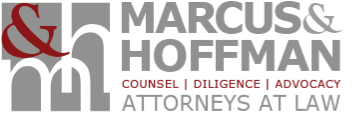We are often asked whether a professional Property Manager for an Association is considered a debt collector under the Federal Fair Debt Collection Practices Act. The clear answer to that question is . . . it depends.
The Federal Fair Debt Collection Practices Act was passed to prohibit certain debt collection practices and to further restrict the actions of debt collectors who were engaging in questionable conduct. Under the Act, a “debt collector” is defined as any person whose principal business purpose is the collection of any debt or one who regularly collects or attempts to collect debts owed or due or asserted to be owed or due another. However, not all who collect debts are deemed “debt collectors” for purposes of the Act. For example, attorneys have been deemed debt collectors under the Act, whereas officers and employees of creditors are generally not. Therefore, a question exists as to whether or not a Manager working at the direction of a Board to collect an Association’s debt would be deemed a debt collector or not, as noted above.
While there is no dispositive case law in Pennsylvania regarding this issue, a recent case captioned Angela Harris, et al. v. Liberty Community Management, Inc., United States Court of Appeals, No. 11-14362 was reported in the Eleventh Circuit. While only persuasive on the issue in Pennsylvania, this case is certainly informative. In this matter, a management company and the manager were sued for violation of the Federal Fair Debt Collection Practices Act. After years of extensive and likely costly litigation, the court ultimately decided that under the specific facts of the case, the manager was not a debt collector, but rather fell under one of the exceptions after applying the issues to their Planned Community state statute.
In the case cited above, the manager and the management company were found to be not liable to the plaintiff. In one sense, they won the lawsuit. In another sense, did they really win given the amount of time, stress and financial resources that went into the lawsuit? In the case of Wright v. Ross, 2008 WL 190466, *2 & n.7 (M.D. Fla. Jan. 18, 2008), the court indicated in dicta that homeowner and condominium owners’ maintenance assessments might qualify as “debt” under the Federal Fair Debt Collection Practices Act. While this case does not explicitly state that the manager and management company would be considered “debt collectors” for the purposes of the Act, it evidences a step in this direction.
As such, it is important to review your collection practices on behalf of Associations in order to bring them into compliance with the Federal Fair Debt Collection Practices Act. By reviewing your procedures and assuring they are in compliance with the Act, you may reduce the risk of an action being filed against you and your company and reduce the risk of a negative outcome.
Should you have any questions regarding this article or your collection practices, please do not hesitate to contact us.
The Federal Fair Debt Collection Practices Act was passed to prohibit certain debt collection practices and to further restrict the actions of debt collectors who were engaging in questionable conduct. Under the Act, a “debt collector” is defined as any person whose principal business purpose is the collection of any debt or one who regularly collects or attempts to collect debts owed or due or asserted to be owed or due another. However, not all who collect debts are deemed “debt collectors” for purposes of the Act. For example, attorneys have been deemed debt collectors under the Act, whereas officers and employees of creditors are generally not. Therefore, a question exists as to whether or not a Manager working at the direction of a Board to collect an Association’s debt would be deemed a debt collector or not, as noted above.
While there is no dispositive case law in Pennsylvania regarding this issue, a recent case captioned Angela Harris, et al. v. Liberty Community Management, Inc., United States Court of Appeals, No. 11-14362 was reported in the Eleventh Circuit. While only persuasive on the issue in Pennsylvania, this case is certainly informative. In this matter, a management company and the manager were sued for violation of the Federal Fair Debt Collection Practices Act. After years of extensive and likely costly litigation, the court ultimately decided that under the specific facts of the case, the manager was not a debt collector, but rather fell under one of the exceptions after applying the issues to their Planned Community state statute.
In the case cited above, the manager and the management company were found to be not liable to the plaintiff. In one sense, they won the lawsuit. In another sense, did they really win given the amount of time, stress and financial resources that went into the lawsuit? In the case of Wright v. Ross, 2008 WL 190466, *2 & n.7 (M.D. Fla. Jan. 18, 2008), the court indicated in dicta that homeowner and condominium owners’ maintenance assessments might qualify as “debt” under the Federal Fair Debt Collection Practices Act. While this case does not explicitly state that the manager and management company would be considered “debt collectors” for the purposes of the Act, it evidences a step in this direction.
As such, it is important to review your collection practices on behalf of Associations in order to bring them into compliance with the Federal Fair Debt Collection Practices Act. By reviewing your procedures and assuring they are in compliance with the Act, you may reduce the risk of an action being filed against you and your company and reduce the risk of a negative outcome.
Should you have any questions regarding this article or your collection practices, please do not hesitate to contact us.

